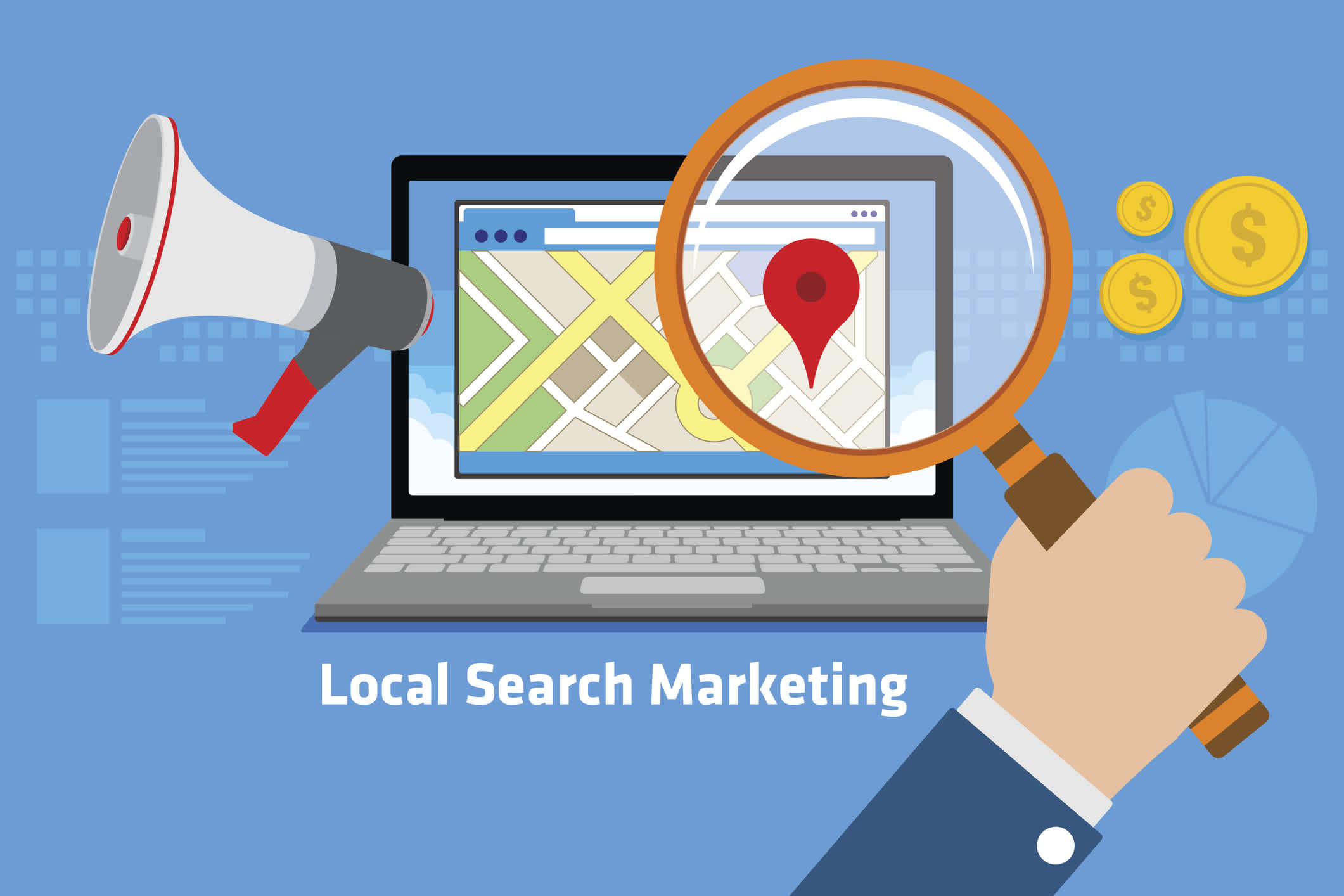//
Jul 23, 2023
Affordable SEO: A Comprehensive Guide to Build Rankings And Win Traffic
Search engine optimization (SEO) has emerged a dynamic investment and a cornerstone of successful .
However, for businesses operating on a tight budget, investing in comprehensive SEO services can seem like a daunting task. The good news is that affordable SEO is not a myth, and with the right tactics, businesses can still achieve significant results without breaking the bank.
Understanding Affordable SEO
Affordable SEO is not just a mere compromise; it's a strategic approach that allows businesses to optimize their online presence and reach their target audience without straining their financial resources. Many businesses, especially small and medium-sized enterprises (SMEs), often shy away from investing in SEO due to misconceptions about its cost and effectiveness. However, understanding the essence of affordable SEO can change their perspective and open up new opportunities for growth.
The Importance of SEO for Business Success
In today's digital age, where the majority of consumers turn to search engines like Google to find products, services, and answers to their queries, having a strong online presence is critical. SEO acts as the bridge that connects businesses with their potential customers. It's not just about increasing ; it's about attracting relevant and high-intent visitors who are more likely to convert into leads or customers.
Businesses that neglect SEO risk losing visibility in search engine results, and as a consequence, potential customers may not even be aware of their existence. On the other hand, those who embrace SEO can gain a competitive edge, establish authority in their industry, and foster long-term growth.
Dispelling the Myth of Compromising Quality
One common misconception about affordable SEO is that it involves cutting corners and sacrificing quality.
However, this couldn't be further from the truth.
Affordable SEO is about being resourceful, creative, and strategic in optimizing a website within a defined budget. It's about making informed choices that prioritize essential elements of SEO while avoiding unnecessary expenditures.
While some and tools can undoubtedly offer added benefits, there are numerous free and cost-effective alternatives available that provide comparable results. With careful planning and research, businesses can identify and leverage these solutions to their advantage.
The Long-Term Benefits of Affordable SEO
Affordable SEO isn't just a short-term fix; it's an investment that yields sustainable results over time. Unlike that stops delivering results once the budget runs out, the effects of SEO can endure for months or even years. By implementing smart tactics and consistently optimizing their website, businesses can establish a strong online presence that continues to attract organic traffic and generate leads long after the initial effort.
Moreover, as a website's organic search rankings improve, it becomes less dependent on paid advertising to maintain visibility, thus reducing marketing expenses in the long run. In this sense, affordable SEO acts as a cost-saving measure that delivers a high return on investment (ROI) over time.
Navigating the SEO Landscape on a Budget
Navigating the SEO landscape on a budget requires careful planning and a clear understanding of the business's goals and target audience. The first step is conducting thorough keyword research to identify relevant and high-impact keywords that align with the business's products or services.
Tools like , SEMrush, Ahrefs, and more offer valuable insights into keyword search volume, competition, and relevance.
Budget Planning for SEO

Creating an effective budget plan is the cornerstone of any successful affordable SEO campaign. Without a well-defined budget and clear goals, businesses risk overspending on ineffective strategies or missing out on crucial opportunities. To optimize on a budget, follow these steps to develop a comprehensive budget plan that maximizes your resources:
1. Identify Target Keywords and Prioritize:
Start by conducting thorough keyword research to identify the most relevant and valuable keywords for your business. Look for keywords with a balance of search volume and competition. Focus on long-tail keywords, as they are often less competitive and more likely to attract highly targeted traffic. Once you have your list of target keywords, prioritize them based on relevance and potential impact.
2. Analyze Competitor Strategies:
Understanding what your competitors are doing can provide valuable insights into the . Analyze the SEO tactics your competitors are using and identify gaps or opportunities in their strategies. This analysis can help you focus your budget on areas where you can outperform your competitors and gain a competitive edge.
3. Set Realistic Goals:
Establish clear and realistic SEO goals that align with . Whether it's increasing organic traffic, improving keyword rankings, or boosting conversions, ensure that your goals are measurable and achievable within your budget limitations. Setting specific targets will help you track your progress and evaluate the success of your SEO efforts.
4. Allocate Budget Wisely:
Once you have your goals and priorities in place, allocate your budget strategically to different aspects of SEO. On-page optimization, content creation, link building, and technical SEO are the core areas to consider. Allocate a larger portion of the budget to areas that are likely to have a more significant impact on your goals. For instance, if your website's on-page SEO needs improvement, allocate more resources to content creation and optimization.
5. Consider DIY vs. Outsourcing:
While some SEO tasks can be handled in-house, others may require specialized knowledge and expertise. Assess your team's capabilities and resources to determine which tasks you can handle internally and which ones are better outsourced. Outsourcing certain aspects of SEO to can be a cost-effective way to access expert knowledge without the overhead of hiring full-time employees.
6. Leverage Free and Low-Cost SEO Tools:
The digital landscape offers a wealth of free and affordable SEO tools that can enhance your optimization efforts. Tools like , Google Search Console, and Google Keyword Planner provide valuable data and insights to help you track website performance, identify keyword opportunities, and measure the success of your campaigns.
7. Monitor and Adjust:
Budget planning is not a one-time activity; it requires continuous monitoring and adjustment. Keep a close eye on the performance of your SEO efforts and use data-driven insights to make informed decisions. If certain strategies are not delivering the expected results, reallocate your budget to more promising tactics. Flexibility and adaptability are crucial in ensuring that your budget is used efficiently to achieve your SEO objectives.
By following these budget planning steps, businesses can optimize their websites effectively while staying within their financial means. Affordable SEO is all about making informed decisions, leveraging available resources, and focusing on strategies that deliver the most significant impact on organic search rankings and overall business growth.
On-Page Optimization Tactics

On-page optimization is the backbone of any successful SEO strategy. By fine-tuning elements within the website, businesses can improve their search engine rankings and create a seamless user experience. While this may sound like a daunting task, many on-page optimization tactics can be implemented without considerable financial investment.
1. Keyword Integration:
Once the relevant keywords are identified, it's essential to integrate them naturally into the website's content. However, avoid keyword stuffing, as it not only hampers readability but also raises red flags with search engines. Focus on providing valuable, informative content that includes keywords in titles, headings, meta tags, and body text.
2. High-Quality, Engaging Content:
Content remains king in the world of SEO. Creating high-quality, engaging content that meets the needs of the target audience is a cost-effective way to drive organic traffic. Valuable content can attract inbound links from other websites, enhancing the website's authority and boosting its search rankings.
Consider writing blog posts, articles, guides, or infographics that provide solutions to common problems faced by your audience. Addressing frequently asked questions and offering unique insights will position your website as a valuable resource, encouraging users to return for more information.
3. Optimize Meta Tags:
Meta tags, including title tags and meta descriptions, play a crucial role in how search engines display and rank your web pages. These tags provide a concise summary of what each page is about. Craft compelling and keyword-rich title tags to grab users' attention in search engine results. Limit the title length to around 60 characters to ensure it appears correctly on search engine result pages (SERPs).
Meta descriptions, on the other hand, should be descriptive, informative, and encourage users to click through to the page. Although meta descriptions don't directly impact rankings, they influence click-through rates, which can indirectly affect search rankings.
4. Improve Website Loading Speed:
Website loading speed is a crucial factor in both user experience and search engine rankings. Slow-loading pages can lead to higher bounce rates, negatively impacting SEO efforts. Fortunately, there are budget-friendly ways to improve website speed.
Compress images without sacrificing quality, enable browser caching, and leverage content delivery networks (CDNs) to distribute content more efficiently. Additionally, minify CSS, HTML, and JavaScript files to reduce their size and optimize the website's performance.
5. Mobile Optimization:
With the majority of internet users accessing websites through mobile devices, mobile optimization is no longer optional—it's essential. Search engines prioritize mobile-friendly websites in their rankings, making this an affordable yet critical aspect of on-page SEO.
ensures that the website adapts to different screen sizes, providing a seamless experience across devices. Test the website on various mobile devices to ensure it loads quickly and displays correctly.
6. Internal Linking:
Internal linking is an often overlooked but powerful on-page SEO tactic. Proper internal linking connects different pages within a website, distributing link equity and improving the website's structure. When done strategically, internal links can help search engines understand the hierarchy of content on the website and prioritize valuable pages.
By implementing these on-page optimization tactics, businesses can lay a strong foundation for their SEO efforts. Affordable yet effective, these strategies will improve search engine rankings, enhance user experience, and drive organic traffic to the website. Remember that on-page SEO is an ongoing process, and regularly monitoring performance and making adjustments will lead to sustainable, long-term success.
Weak search visibility complicating your brand’s opportunities?
Weak search visibility complicating your brand’s opportunities? Gain clarity, measure success, and differentiate your brand with data-informed SEO services that drive real results. Ready to grow? Contact us today.
Off-Page SEO Strategies on a Budget

Off-page SEO refers to activities that occur outside of your website but still have a significant impact on your search engine rankings and online reputation. While these factors might be more challenging to control directly, there are several budget-friendly strategies that businesses can leverage to boost their off-page SEO efforts and improve their online visibility.
1. Guest Posting and Content Contributions:
Guest posting involves writing and publishing articles or blog posts on other websites within your industry or niche. By contributing valuable and relevant content to external platforms, businesses can build backlinks to their website and increase brand exposure.
Look for websites that have a good reputation and a substantial audience base, as this will ensure that your content reaches a broader and more engaged audience. Establishing yourself as an authority in your field through guest posting not only helps with SEO but also enhances your credibility and trustworthiness in the eyes of potential customers.
2. Engaging in Industry-Related Forums and Communities:
Participating in forums and online communities that are relevant to your industry can be an effective way to build backlinks and connect with your target audience directly. Look for active forums and social media groups where your potential customers are likely to hang out. Engage in meaningful discussions, answer questions, and provide valuable insights.
By actively participating and contributing, you can position yourself as an industry expert and attract more visitors to your website through well-placed links in your forum signature or community profile.
3. Social Media Engagement:
provide an excellent opportunity for businesses to promote their content and engage with their audience. While paid advertising can be costly, organic promotion through regular posting and community engagement can be quite effective on a budget. Create shareable content that resonates with your audience and encourages them to share it with their networks.
The more your content gets shared and linked to, the better it is for your off-page SEO. Additionally, building relationships with influencers or other businesses in your niche can lead to potential collaborations and increased exposure.
4. Online Business Directories and Listings:
Listing your business on relevant online directories and local listings can significantly improve your off-page SEO, especially for local businesses. Start by claiming and optimizing your Google Business profile, ensuring that all business information is accurate and up-to-date.
This not only helps in local search rankings but also enhances your visibility on Google Maps. Additionally, explore other industry-specific directories and local business listings that align with your products or services. Consistency in business information across all directories is crucial for building trust and credibility with search engines and potential customers.
By engaging in guest posting, participating in industry-related forums, leveraging social media platforms, and optimizing online directories, businesses can make a significant impact on their off-page SEO without stretching their budgets.
Remember: consistent efforts and a focus on quality and relevance are key to achieving long-term success in the digital landscape. Embrace these budget-friendly off-page SEO tactics and watch your website's visibility soar, bringing in valuable organic traffic and potential customers.
Local SEO for Small Businesses

In today's competitive digital landscape, has become an indispensable aspect of marketing for small businesses targeting specific geographic areas.
As the majority of consumers now turn to search engines to find local products and services, having a robust local SEO strategy can significantly impact a business's online visibility, foot traffic, and overall success. The best part is that local SEO can be effectively implemented on a budget, making it an ideal choice for small businesses looking to make a big impact in their local markets.
1. Claim and Optimize Google Business Profiles:
One of the first and most critical steps in local SEO is to claim and optimize your Google Business profile. Google Business is a free tool provided by Google that allows businesses to create a prominent listing on Google Search and Maps. By claiming and verifying their Google Business listing, businesses gain more control over the information displayed in search results, making it easier for potential customers to find essential details about the business, such as location, contact information, business hours, and website.
Optimizing your Google Business profile involves providing accurate and up-to-date information about the business, selecting the appropriate categories that best represent the products or services offered, and uploading high-quality images that showcase the business's offerings and premises. Encouraging satisfied customers to leave positive reviews on your Google Business listing can also boost local search rankings and instill confidence in potential customers.
2. Encourage Customer Reviews:
Customer reviews play a significant role in local SEO and can have a direct impact on a business's online reputation. Positive reviews not only improve a business's credibility but also act as a powerful word-of-mouth marketing tool. They can influence potential customers' decision-making and encourage them to choose one business over another.
To encourage customer reviews, businesses can politely ask satisfied customers to leave feedback after a purchase or service experience. This can be done through follow-up emails, printed materials at the physical location, or even a simple request on the Google Business listing. Responding to reviews, both positive and negative, shows that the business values customer feedback and is actively engaged in providing the best possible service.
3. Participate in Local Directories and Listings:
Apart from Google Business, there are numerous other local directories and listings specific to industries and locations that can significantly boost a business's local SEO efforts. These directories act as virtual phone books, helping potential customers find relevant businesses in their area.
Businesses should ensure that they have a consistent and accurate presence across these directories, as search engines take this information into account when determining local search rankings. It's crucial to have the same NAP (Name, Address, Phone number) information across all platforms to avoid confusion and enhance credibility.
4. Implement Local Structured Data Markup:
Structured data markup, also known as schema markup, is a form of code that businesses can add to their website to provide search engines with more context about their content. For local businesses, implementing local structured data markup can help search engines understand crucial details such as the business's address, phone number, business hours, customer reviews, and more.
By incorporating this markup, businesses increase the likelihood of their information being featured in rich snippets on search engine results pages (SERPs). Rich snippets provide additional details directly on the search results, making the business listing more attractive and informative to potential customers.
5. Create Location-Specific Content:
Developing location-specific content can help small businesses establish a strong local presence. This content can include blog posts, articles, or landing pages that address local events, news, or trends relevant to the business's target audience. By incorporating local keywords and phrases naturally into the content, businesses can further improve their chances of ranking higher in local searches.
6. Foster Local Community Engagement:
Engaging with the local community is an essential aspect of local SEO. Businesses can participate in local events, sponsor community initiatives, and collaborate with other businesses in the area. Being an active and visible part of the community not only strengthens the business's reputation but can also lead to valuable online mentions and backlinks from local organizations and websites.
For small businesses seeking to expand their reach within their local markets, investing in local SEO is a wise decision. By claiming and optimizing Google Business, encouraging customer reviews, participating in local directories, implementing structured data markup, creating location-specific content, and fostering community engagement, businesses can boost their online visibility and attract more local customers.
Local SEO presents an affordable and highly effective means for small businesses to thrive in their communities, gain a competitive edge, and achieve long-term success.
Analyzing and Measuring SEO Success

Measuring the success of SEO efforts is an integral part of any effective digital marketing strategy. Without proper analysis and tracking, it becomes challenging to understand the impact of SEO initiatives and make data-driven decisions for continuous improvement. Fortunately, various free and affordable analytics tools are available to help businesses monitor and evaluate their SEO performance.
1. Google Analytics: The Powerhouse of Insights
Google Analytics is a powerful and widely used web analytics tool that provides a wealth of information about website traffic, user behavior, and performance metrics. By implementing the Google Analytics tracking code on their website, businesses can gain valuable insights into how visitors interact with their pages.
With Google Analytics, businesses can monitor the number of visitors to their site, the sources of traffic (organic, direct, referral, etc.), and the geographical location of their audience. They can also analyze user behavior on specific pages, identifying which ones receive the most visits, have the highest bounce rates, or lead to conversions.
This data enables businesses to understand the effectiveness of their SEO efforts. They can identify pages that perform well in search results and those that need optimization. By leveraging this information, they can focus on content and keywords that resonate with their target audience, leading to improved search rankings and increased organic traffic.
2. Keyword Tracking Tools: Gauging Search Ranking Progress
Monitoring keyword rankings is crucial to gauge the success of SEO efforts. Keyword tracking tools allow businesses to track the positions of their target keywords in search engine results over time. These tools provide valuable data on keyword fluctuations, helping businesses understand if their optimization strategies are yielding positive results.
By continuously tracking keyword rankings, businesses can identify keywords that require more attention or have the potential to bring in more traffic. This information empowers them to refine their SEO tactics, optimize content around high-performing keywords, and explore new keyword opportunities.
3. Traffic and Conversion Metrics: Tying SEO to Business Objectives
While increased organic traffic is an essential SEO goal, businesses must also focus on to align their efforts with overarching business objectives. Conversion tracking allows them to measure the percentage of visitors who take desired actions, such as signing up for a newsletter, making a purchase, or filling out a contact form.
By tying SEO efforts to conversion metrics, businesses can determine the true impact of their optimization initiatives on the bottom line. They can identify pages that generate the most conversions and replicate successful strategies on other pages. Moreover, businesses can identify potential bottlenecks in the conversion funnel and implement targeted improvements to increase overall conversion rates.
4. User Experience Insights: Improving Website Engagement
In addition to traffic and conversion metrics, plays a critical role in SEO success. A positive user experience not only leads to better conversion rates but also helps improve search rankings. Search engines increasingly prioritize user satisfaction when ranking websites.
Google Analytics provides valuable UX insights, such as average time spent on site, bounce rate, and click-through rates (CTRs). High bounce rates may indicate that users are not finding what they are looking for, while low CTRs might suggest that page titles and meta descriptions need improvement. By addressing UX issues, businesses can enhance their website's performance and attract more organic traffic.
Remember, SEO is an ever-evolving process, and consistent monitoring and analysis are necessary for staying ahead of the competition. Embrace the power of data to transform your affordable SEO initiatives into powerful drivers of success for your digital marketing efforts. With careful evaluation and smart optimization, your website will be well-equipped to thrive in the dynamic and competitive online landscape.
Achieving Local and Global Rankings is Within Reach
Affordable SEO is within reach for businesses of all sizes. By understanding the fundamentals and implementing smart tactics, businesses can optimize their websites effectively without straining their budgets. Remember that SEO is a continuous process, and consistent efforts will yield long-term benefits.
With careful budget planning, on-page and off-page optimization, and a focus on local SEO, businesses can improve their online visibility, attract organic traffic, and compete in the digital marketplace. Embrace affordable SEO as a powerful tool to drive business growth and seize the opportunities that the online world has to offer.







